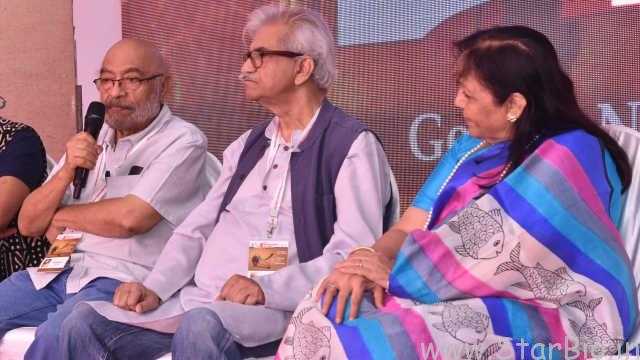The Pune International Film Festival’s (PIFF) forum kick-started on 11 January with a panel discussion with actress Rohini Hattangadi and filmmaker Govind Nihalani about their craft and work in Richard Attenborough’s Gandhi (1982), a film on the life of Mahatma Gandhi.
The theme for this year’s PIFF is ‘In Search of Truth’ to celebrate the 150th birth anniversary of Mahatma Gandhi.
Gandhi was nominated for the Academy Awards in 11 categories. It won eight awards, including Best Picture and Best Director for Attenborough, and Best Actor for Ben Kingsley.
Remembering the audition process for the film, Hattangadi, who played the role of Kasturba Gandhi in the film, said, “To be very frank, I didn’t know the magnitude of Gandhi when I was chosen. I was just under the impression that I have to play this character from young (age to old), from 27 to 74. And I was excited since it was just my fourth film,” said Hattangadi.
The other two actress (vying for the role) were really well-known and good actresses — Bhakti Barve and Smita Patil. But according to Sir Attenborough… I used to call him that, I was nearest looking or closest to the role so he decided to cast me,” she said.
Hattangadi went on to win the BAFTA for Best Actress in a Supporting Role, becoming the only Indian actress to receive a BAFTA.
Nihalani, who was the second unit director on Gandhi and also filled in for the British DOP for a few days when he fell sick, says that he was lucky to have got the chance to work on Gandhi after directing just one film, Aakrosh (1980).
“Gandhi was a stroke of luck for me. I got to work on it when I had just done one film, Aakrosh. Richard Attenborough, since it was a co-production between UK and India, wanted Indian technicians to work on the film. Attenborough wanted to see the work of directors they were considered. They watched Aakrosh,” said Nihalani.
After watching they called Nihalani for an interview. “The person who supported me and liked my work was the DOP of Gandhi, Ronnie Taylor. He mentioned a scene where he liked the photography and the lighting in that particular scene. I was really surprised because for me that scene was nothing very special,” he said.
“I guess they got the look and feel that they were looking for in Gandhi,” he added.
Nihalani’s involvement with Gandhi was in stark contrast with the films that he made. Nihalani’s films have always depicted violence. Gandhi, on the other hand, followed the milestone events in the life of Mahatma Gandhi and his philosophy of non-violence.
Nihalani said that he was first given the script and asked to go through it, before deciding if he wanted to be a part of the film.
After reading the script Nihalani asked to meet with Attenborough before deciding to give it a nod.
“I asked him something. I said ‘Sir your script is fine. But how come in the entire film about Independence of India, there’s no Subhash Chandra Bose?’ Your script does not even mention him. He said, ‘I understand, you are right’. He said that while writing the script we realised that Subhash Chandra Bose was such a powerful personality that if we took him then we’ll have to make an entire film on Bose. He can’t be a secondary person,” said Nihalani.
“So they put their entire focus on the philosophy of the non-violence movement by Gandhi,” he said.

